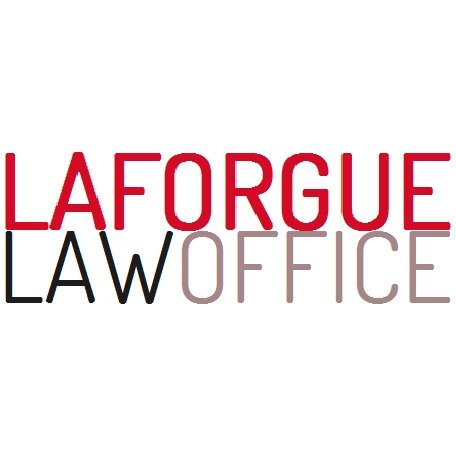Best Wrongful Termination Lawyers in France
Share your needs with us, get contacted by law firms.
Free. Takes 2 min.
Or refine your search by selecting a city:
List of the best lawyers in France
About Wrongful Termination Law in France
Wrongful termination, known as "licenciement abusif" in French, refers to termination of employment that does not comply with labor laws or does not have just cause. French labor laws are quite protective of employees, requiring employers to justify termination and follow a specific legal procedure. If an employee believes they have been wrongfully terminated, they may seek redress through legal channels to enforce their rights, often resulting in reinstatement or compensation.
Why You May Need a Lawyer
While individuals have the right to contest wrongful termination on their own, a lawyer specializing in labor law can provide invaluable assistance in several scenarios:
- Lack of Legal Knowledge: Navigating French labor laws can be complex for someone unfamiliar with legal jargon and procedures.
- Document Preparation: A lawyer can help in preparing necessary documents and gathering evidence to strengthen your case.
- Representation: Lawyers can represent you in court or during negotiation processes to achieve the best possible outcome.
- Negotiation Skills: Lawyers can negotiate settlements or compensation, potentially avoiding lengthy court proceedings.
- Emotional Support: Experiencing job loss can be stressful; having experienced legal counsel can provide reassurance and clarity.
Local Laws Overview
Several key aspects of local laws are important in understanding wrongful termination in France:
- Causal Justification: Employers must provide a valid reason for termination such as misconduct, economic difficulty, or incompetence.
- Procedural Requirements: Employers must follow standardized procedures, including sending a formal letter and conducting pre-dismissal interviews.
- Termination Compensation: Employees are entitled to various forms of compensation, including notice pay and severance, depending on circumstances.
- Right to Contest: Employees can challenge dismissals at the "Conseil de Prud'hommes," the French labor court.
- Protection Against Discrimination: Employers are prohibited from terminating employees for discriminatory reasons such as gender, race, religion, or disability.
Frequently Asked Questions
What constitutes wrongful termination in France?
Wrongful termination occurs when an employer fails to provide a legal, justified reason for dismissal or does not adhere to the correct procedural steps.
How long do I have to contest a termination?
Employees typically have two years from the date of termination to contest the dismissal in labor court.
Can I be fired without warning in France?
No, French law mandates a clear procedure that includes a pre-dismissal interview and a formal dismissal letter.
Am I entitled to compensation if wrongfully terminated?
Yes, you may be entitled to compensation, reinstatement, or both if you win your case in labor court.
How can I prove wrongful termination?
Gather evidence such as emails, witness statements, and any documentation surrounding the termination process.
Can an employer terminate for economic reasons?
Yes, but the employer must demonstrate genuine economic difficulties and explore all possible alternatives to termination.
Are temporary or fixed-term contracts also protected?
Yes, protections apply to all types of contracts, though the conditions and procedures may vary slightly.
What should I do immediately after receiving a termination notice?
Consider seeking legal advice and start gathering all pertinent documents related to your employment and termination.
Is it possible to negotiate a settlement out of court?
Yes, many cases are resolved through mediation, where you can negotiate severance packages or other settlements.
What are my rights during a pre-dismissal meeting?
You have the right to know the reasons for potential dismissal and to be accompanied by another person, such as a colleague or union representative.
Additional Resources
Here are some resources to assist those dealing with wrongful termination:
- Conseil de Prud'hommes: The French labor courts where employment disputes are resolved.
- Ministry of Labor: Provides guidance on employee rights and labor laws.
- L’Inspection du Travail: The French labor inspectorate that can provide advice and support.
- Trade Unions: Organizations like the CFDT, CGT, and FO can offer support and advice.
Next Steps
If you believe you've been wrongfully terminated, consider the following actions:
- Seek Legal Advice: Contact a lawyer specializing in labor law for an initial consultation.
- Gather Evidence: Collect all relevant documents and evidence related to your termination.
- File a Claim: If necessary, file a claim with the Conseil de Prud'hommes to contest the termination.
- Consider Mediation: Explore the possibility of resolving the dispute through mediation to avoid lengthy court proceedings.
Lawzana helps you find the best lawyers and law firms in France through a curated and pre-screened list of qualified legal professionals. Our platform offers rankings and detailed profiles of attorneys and law firms, allowing you to compare based on practice areas, including Wrongful Termination, experience, and client feedback.
Each profile includes a description of the firm's areas of practice, client reviews, team members and partners, year of establishment, spoken languages, office locations, contact information, social media presence, and any published articles or resources. Most firms on our platform speak English and are experienced in both local and international legal matters.
Get a quote from top-rated law firms in France — quickly, securely, and without unnecessary hassle.
Disclaimer:
The information provided on this page is for general informational purposes only and does not constitute legal advice. While we strive to ensure the accuracy and relevance of the content, legal information may change over time, and interpretations of the law can vary. You should always consult with a qualified legal professional for advice specific to your situation.
We disclaim all liability for actions taken or not taken based on the content of this page. If you believe any information is incorrect or outdated, please contact us, and we will review and update it where appropriate.
Browse wrongful termination law firms by city in France
Refine your search by selecting a city.















